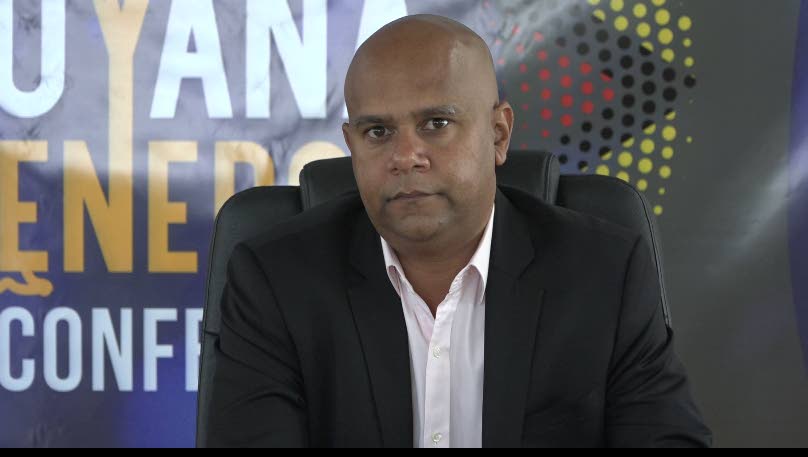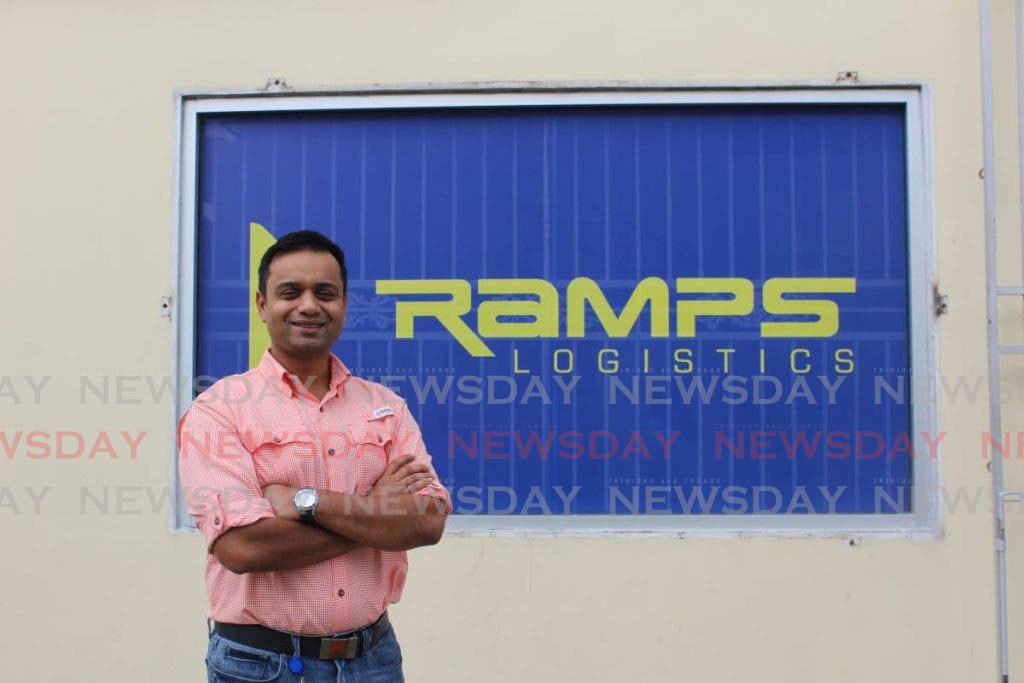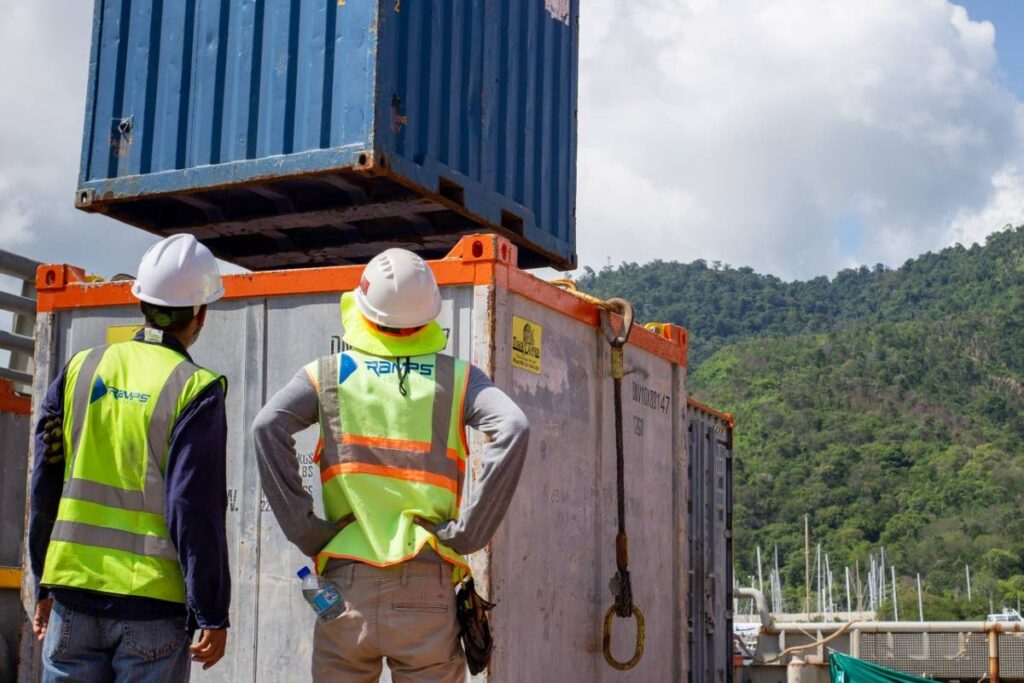Guyana’s right to profits: Is local content law a double-edged sword?
Ryan Hamilton-Davis

The recent news surrounding Trinidad-based Ramps Logistics’ denial to operate in Guyana because of specifications in its recently proclaimed Local Content Act has sparked a lot of conversation, locally and regionally, on the balancing act governments must perform when ensuring that resources and commodities are shared with international parties, as well as ensuring that their populations benefit the most.
The act, proclaimed in December 2021, has raised eyebrows and led to questions on whether Guyana’s protection of proceeds from its new-found oil and gas resources may be a cause for concern for Caricom.
But Timothy Tucker, the Georgetown Chamber of Commerce and Industry president and advocate for local content policies in Guyana, defended the act and the specifics that were grounds to deny Ramps Logistics, saying that these rules were intended to ensure that the bulk of profits coming out of the energy sector stay at home where it belongs.
The Guyanese Local Content Act
The Guyanese Local Content Act (LCA) was enacted to provide obligations on businesses involved in the energy sector to prioritise Guyanese nationals and companies in procurement for the enhancement for the oil and gas value chain; to develop local capacity and to promote competitiveness and encourage the creation of industries that would help the country’s development.
The LCA states that every person who enters into a petroleum agreement in accordance with the Guyanese Petroleum Act, every holder of a licence granted under the act is required to utilise “local content” as an essential part of its operations.

But what does “local content” mean?
The act defined local content as: “the monetary value of inputs from the supply of goods or the provision of services by Guyanese nationals or Guyanese companies.”
For a company specified in the act to have a licence to operate, one of the requirements is that the business must have a percentage of local content. A total of 40 sectors were identified by the LCA as subject to the minimum local content requirements.
For example, welding companies must have at least 25 per cent Guyanese participation. Onshore pipe sand blasting requires 30 per cent participation. Onshore construction work for buildings require 50 per cent participation. Food supply and administrative support requires at least 75 per cent. Transportation services in particular has a high participation requirement with trucking companies requiring 75 per cent participation and ground transportation in the form of movement of people must have a 100 per cent participation by Guyanese nationals. Customs brokerage businesses require a 100 per cent Guyanese participation as well.
The LCA also requires that a Guyanese national must also be a beneficial owner for the company to be granted a licence to operate in the specified sub-sectors in the energy sector. That national must have a 51 per cent beneficial ownership in the company. The executive board of the company must also be 75 per cent Guyanese.
TT has been eyeing similar policies since 2004, when the then Patrick Manning-led PNM developed a local content and participation policy and framework. In the policy framework submission it was suggested that government maximise value for the country from its assets through fiscal measures such as taxation and royalty policies, maximising the amount of local ownership, control and financing, as well as maximising the level of local goods and services used in the TT energy sector.
Law firm: could this be a problem for Caricom
In March, Miguel Vasquez, senior associate in Hamel Smith and Co’s taxation and dispute and risk management groups, raised questions on whether the LCA, while protecting the interests of the Guyanese people could hinder the country’s ability to meet its regional obligations and commitments in a blog post on the company’s website.
“What is curious about the local content definition is that the scope of people covered extends only to Guyanese citizens with no carve out for nationals of Caricom member states,” Vasquez said in the article.
He compared the act to TT’s Foreign Investment Act which also subjects foreign investors to restrictions and requirements when it comes to the acquisition and holding of land shares, however Caricom member states’ nationals and companies are not included in those requirements.
Vasquez also made note that Guyana signed on the Revised Treaty of Chaguaramas, which formed Caricom. The treaty was signed in 1973 by Barbados, Guyana, Jamaica and TT, and provides for integration of efforts in economic matters, coordination of foreign policies and functional cooperation in labour administration, industrial relations, social security and other matters affecting the region.
He pointed out that the fact that the establishment of the minimum number of Guyanese nationals and companies must be engaged under the LCA, did not facilitate the access by nationals of all the collective resources of Caricom.
But Tucker said these sub-sectors are only a fraction of sectors where Guyanese companies have any kind of advantage.
“Outside entities are allowed to participate in the sector in these areas up to 45 per cent,” he said. “They also have the opportunity to participate in 80 per cent of the industry.”
He said the oil and gas industry has about 180 sub-sectors in Guyana.
Ramps: Lall perfect to do business in Guyana
Ramps Logistics CEO Shaun Rampersad said he felt that his company met all the requirements to do business in Guyana’s energy sector but was still denied. He pointed out that Ramps had met the requirements of having a staff that was 90 per cent and a board that was 75 per cent Guyanese.

He said the only requirement that the company had not met was to have a Guyanese national who had 51 per cent stake in the company and he felt that they had found a solution in Deepak Lall, managing director at Qualitech, a mechanical engineering company which supports the petrochemical, manufacturing, marine, food and beverage, quarrying, agriculture, oil exploration and construction industries.
Lall, Business Day was told, has dual citizenship for TT and Guyana. His father, a Guyanese had to leave the country in the 1960s because of political persecution. When he fled the country he came to TT and married a Trinidadian woman.
“We thought that Deepak was a great candidate,” Rampersad said. “He is a member of the diaspora, he is well educated and has done well for himself. He is just the kind of person who I think Guyana needs. His business, Qualitech is a major supplier to Point Lisas.”
Rampersad said that they hired the most suitable people to advise them on how to treat with the new laws and requirements that came with the LCA, and followed that advice. But when Ramps submitted a request for a local content licence it was denied.
“When we sent everything they gave us an automated response that we were denied access to the local content register. We sent them a letter asking why we were denied. We didn’t hear anything from them for two days. Then our lawyers wrote to them three days later asking why we were denied.”
“If you make a law and ask people to follow it but when they follow it they are still denied, then it is okay to give a reason why, especially when we have hundreds of people working for us over there.”
Ramps, an integrated logistics company that services the energy industry, went into Guyana in 2013 to set up a company there which would support commodity trading. In 2014 when Exxon came to Guyana, Ramps offered its services in energy industry logistics. It started its relationship with Exxon in 2015, and with partner company El Dorado Offshore, Ramps was able to grow the business in Guyana from a few people in an office to more than 400 employees.
Rampersad said without the licence Ramps can still operate in Guyana but most of its business is in the oil and gas sector, which means it would be significantly affected if it is not able to do business in these sectors. Rampersad said two of the areas in its business that would be affected are customs brokerage and transportation.

Tucker told Business Day that although the LCA requires a Guyanese to own the business in these areas, it is not just simple ownership but a beneficial ownership of the company that is required. He said that the onus is on the company to prove that there is beneficial ownership by a Guyanese.
“Beneficial ownership means that money must be given to you as an owner, and that the person in question must have controlling interest,” he said. “It cannot be one Guyanese and 50 Europeans that own the company.”
